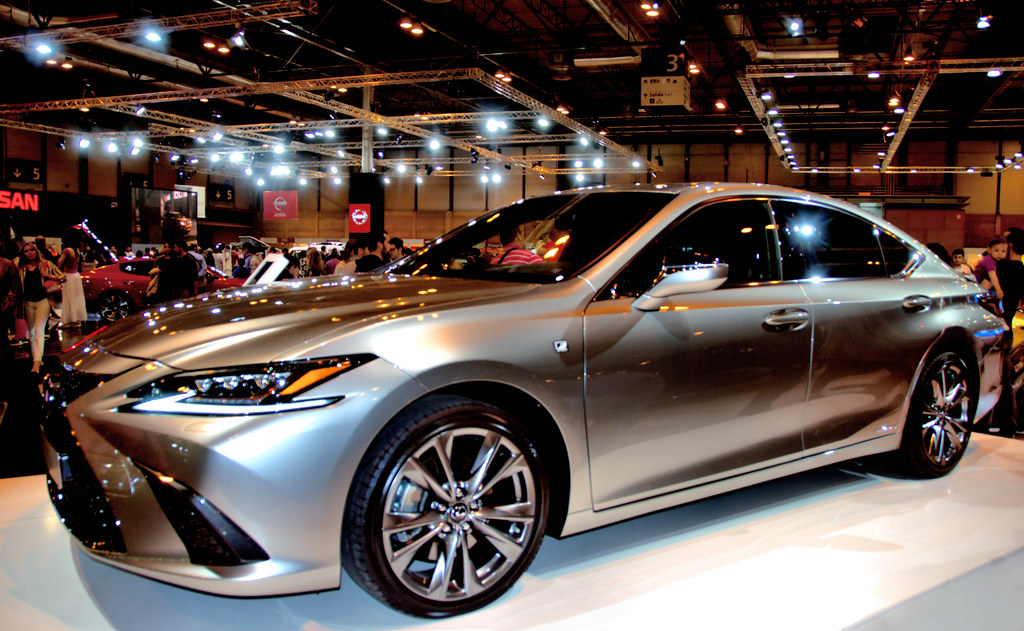
The automotive landscape is constantly evolving, driven by an insatiable demand for greater efficiency and reduced environmental impact. For decades, the pursuit of maximizing miles per gallon has captivated engineers and consumers alike, leading to groundbreaking innovations in powertrain technology and vehicle design. As fuel prices continue to fluctuate and environmental consciousness grows, the compact car segment has become a hotbed of innovation, proving that smaller footprints don’t mean sacrificing capability or comfort.
Today, the definition of “efficient” is being aggressively redefined, especially by an impressive new wave of hybrid vehicles. Forget the notion that hybrids are slow or uninspiring; the latest compact offerings are shattering expectations, delivering fuel economy figures that were once unthinkable. These aren’t just incremental improvements; we’re talking about a paradigm shift where cars are not only achieving but dramatically *exceeding* benchmarks like 38 MPG city and 50 MPG highway, proving that cutting-edge technology can deliver both thrilling performance and unparalleled economy.
In this in-depth exploration, we delve into eight standout vehicles that are not merely participating in this revolution but are leading it, offering a compelling blend of advanced engineering, practical features, and a driving experience that belies their frugal nature. We will dissect their specifications, highlight their innovative features, and analyze how they manage to deliver exceptional fuel efficiency without compromising on the qualities that matter most to today’s discerning drivers. Prepare to discover the new champions of the compact hybrid segment, as we unpack what makes them truly remarkable.
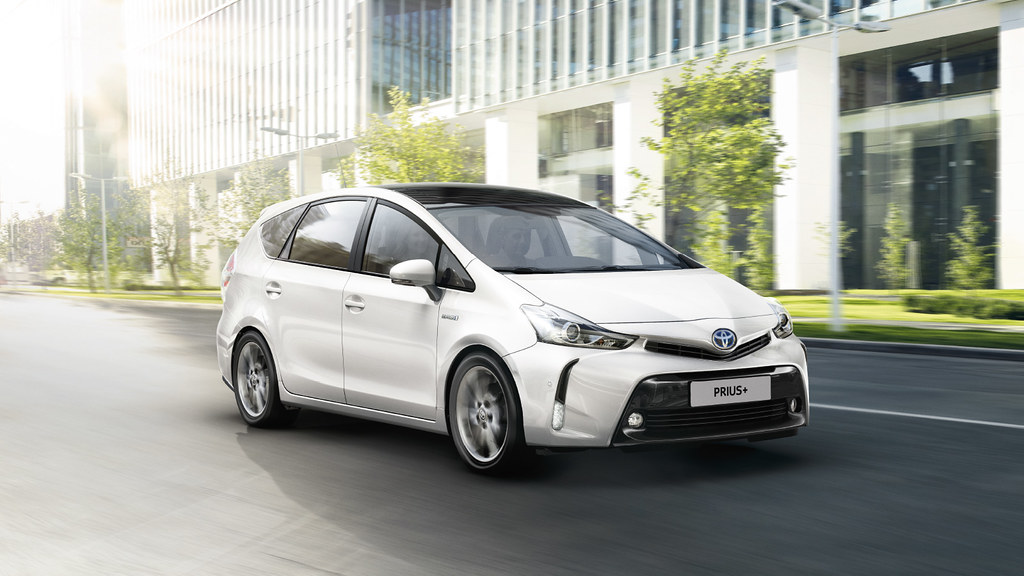
1. **2025 Toyota Prius FWD: The Enduring Hybrid Benchmark Reimagined**
The Toyota Prius has long been synonymous with hybrid technology, a pioneer that reshaped automotive perceptions of efficiency when it was introduced in the 2001 model year in the United States. Fast forward to 2025, and the latest iteration of the Prius continues to solidify its position as the segment’s efficiency king. With a combined EPA rating of 57 MPG, it consistently demonstrates how careful design and relentless research and development can keep a legend at the forefront of innovation, even in a crowded market. Real-world testing consistently shows drivers can expect over 50 mpg, a testament to its optimized powertrain and aerodynamic prowess.
Toyota’s commitment to refining the Prius is evident in its meticulous aerodynamic sculpting, particularly its distinctive teardrop-shaped body. This design isn’t just for aesthetics; it plays a crucial role in minimizing drag, allowing the car to slice through the air with remarkable efficiency. Beneath its sleek exterior, the compact drivetrain features a small gasoline engine augmented by an electric motor, collectively producing a robust 194 horsepower. This combination, paired with the vehicle’s lightweight construction, results in a surprisingly eager and responsive driving experience, capable of accelerating to 60 mph in a quick 7.7 seconds – a far cry from the “stodgy appearance” of earlier models.
Beyond its impressive performance and economy figures, the 2025 Prius offers a stylish, solid, and highly versatile interior. Its hatchback body and folding rear seats unlock substantial cargo capacity, making it immensely practical for daily use. The cabin is equipped with a suite of modern tech features, including Android Auto, Apple CarPlay, and Amazon Alexa, all seamlessly controlled via a large central touchscreen. Safety is also a paramount concern, with Toyota Safety Sense 2.0 package standard, encompassing active cruise control, lane assist, automatic braking, and pedestrian detection, providing comprehensive peace of mind for occupants.
While the Prius stands out for its class-leading efficiency and satisfying driving dynamics, it’s worth noting a couple of unique characteristics. Rear headroom, due to the sloping roofline, can be slightly compromised for taller passengers, and some drivers find the overly designed gauge cluster’s orientation in the dashboard occasionally difficult to read. However, these minor quirks do little to diminish the overall appeal of this magnificent hatchback, which also offers all-wheel drive and plug-in hybrid versions for those seeking even greater capability or economy, further cementing its versatility and status as a hybrid benchmark.
Car Model Information: 2023 Toyota Prius LE
Name: Toyota Prius
Caption: Fifth generation Prius (XW60)
Manufacturer: Toyota
Production: December 1997 – present
ModelYears: 2001–present (US)
Class: ubl
BodyStyle: unbulleted list
Layout: unbulleted list
Sp: uk
Categories: 2000s cars, 2010s cars, 2020s cars, All-wheel-drive vehicles, All Wikipedia articles in need of updating
Summary: The Toyota Prius ( PREE-əss) (Japanese: トヨタ・プリウス, Hepburn: Toyota Puriusu) is a compact/small family liftback (supermini/subcompact sedan until 2003) produced by Toyota. The Prius has a hybrid drivetrain, which combines an internal combustion engine and an electric motor. Initially offered as a four-door sedan, it has been produced only as a five-door liftback since 2003.
The Prius was developed by Toyota to be the “car for the 21st century”; it was the first mass-produced hybrid vehicle, first going on sale in Japan in 1997 at all four Toyota Japan dealership chains, and subsequently introduced worldwide in 2000.
In 2011, Toyota expanded the Prius family to include the Prius v, an MPV, and the Prius c, a subcompact hatchback. The production version of the Prius plug-in hybrid was released in 2012. The second generation of the plug-in variant, the Prius Prime, was released in the U.S. in November 2016. The Prius family totaled global cumulative sales of 6.1 million units in January 2017, representing 61% of the 10 million hybrids sold worldwide by Toyota since 1997. Toyota sells the Prius in over 90 markets, with Japan and the United States being its largest markets.
Get more information about: Toyota Prius
Buying a high-performing used car >>>
Brand: Toyota Model: Prius
Price: $21,989 Mileage: 84,660 mi.
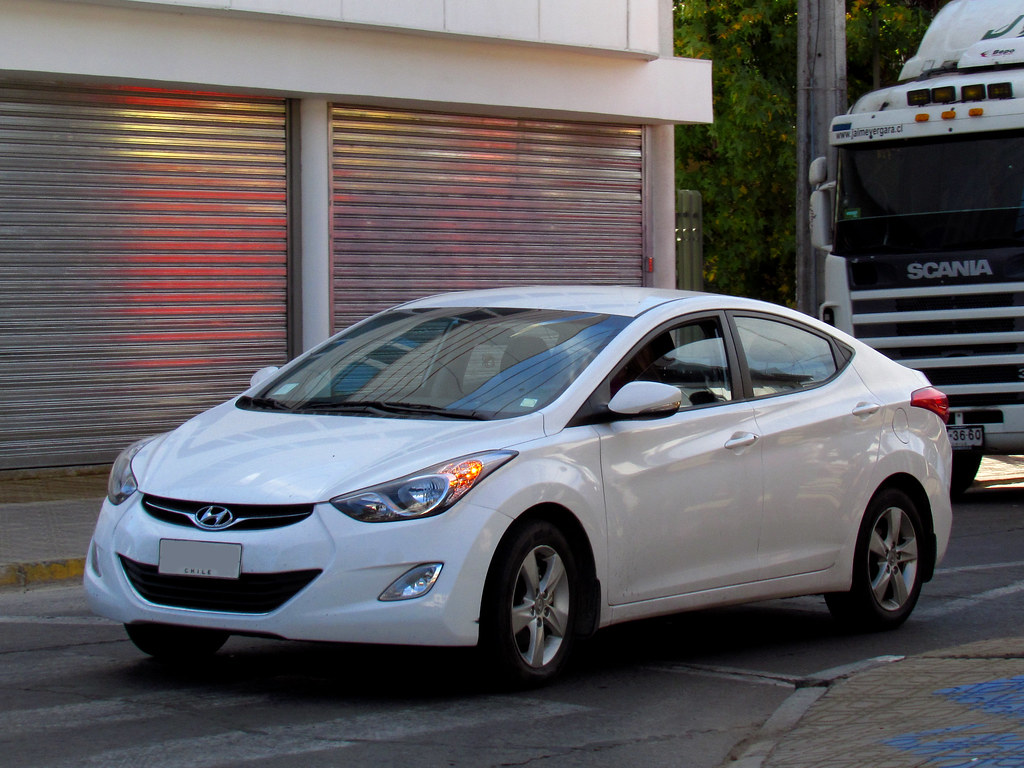
2. **2025 Hyundai Elantra Hybrid: The Highway Efficiency Champion with Tech Savvy**
Hyundai’s compact Elantra has established itself as one of the best-selling cars in the U.S., a reputation earned through its compelling blend of interior space, desirable features, and strikingly edgy styling. While the gasoline-powered Elantra already boasts impressive efficiency, the hybrid variant elevates this to an entirely new level, securing its place as a formidable contender in the high-MPG segment. For those who prioritize highway commuting, the Elantra Hybrid truly shines, delivering an exceptional 58 MPG on the highway—a figure that leads all other hybrid cars in the U.S., surpassed only in city driving by the venerable Prius.
The powertrain responsible for this remarkable efficiency is a meticulously engineered combination of a 1.6-liter direct-injection gasoline engine and a 32-kW battery and electric motor. This synergistic setup generates a combined 139 horsepower and a robust 195 lb-ft of torque, ensuring that the Elantra Hybrid is not just economical but also possesses sufficient power for confident acceleration and responsive driving. Its combined EPA rating of 54 MPG further underscores its overall efficiency, making it an intelligent choice for drivers looking to maximize their fuel savings without sacrificing driving enjoyment.
Inside, the Elantra Hybrid continues to impress with its generous interior volume, measuring a capacious 99.4 cubic feet. This provides ample room for passengers, defying expectations for a compact sedan. The cabin is also a hub of modern technology, featuring a large central touchscreen, an available digital instrument cluster, and wireless Android Auto and Apple CarPlay as standard amenities, ensuring seamless connectivity and entertainment. Despite its many strengths, some reviews note the presence of hard plastic materials in the interior, particularly in the back seat, which can slightly detract from an otherwise premium feel.
Safety is another area where the Elantra Hybrid excels, coming equipped with a comprehensive array of standard safety systems. These include forward collision assist with pedestrian detection, rear cross-traffic collision avoidance assist, lane keeping assist, and blind spot assist, among others, providing a robust layer of protection. Further reassurance for owners comes in the form of an outstanding 10-year, 100,000-mile battery warranty and complimentary scheduled maintenance for the first three years, reinforcing Hyundai’s commitment to long-term reliability and customer satisfaction, and making the Elantra Hybrid a truly well-rounded package.
Car Model Information: 2023 Nissan Rogue SL
Name: Hyundai Elantra/Avante
Manufacturer: Hyundai Motor Company
Aka: Hyundai Avante,Hyundai Lantra (1990–2000),Hyundai i30 Sedan (2020–present)
Production: 1990–present
Class: Compact car
Layout: Front-engine, front-wheel-drive layout
Predecessor: Hyundai Stellar
Categories: 2000s cars, 2010s cars, 2020s cars, All articles with bare URLs for citations, All articles with dead external links
Summary: The Hyundai Elantra (Korean: 현대 엘란트라), also known as the Hyundai Avante (Korean: 현대 아반떼), is a compact car produced by the South Korean manufacturer Hyundai since 1990. The Elantra was initially marketed as the Lantra in Australia and some European markets. In Australia, this was due to the similarly named Mitsubishi Magna Elante model; in Europe because of the Lotus Elan. The home market name Avante used from the second generation is not used in most export markets due to its similarity with Audi’s “Avant” designation, used for their station wagon models. The name was standardized as “Elantra” worldwide in 2001 (except in South Korea, Singapore and Russia).
Get more information about: Hyundai Elantra
Buying a high-performing used car >>>
Brand: Hyundai Model: Elantra Hybrid
Price: $22,800 Mileage: 50,186 mi.
Read more about: Navigating the 2025 Market: Edmunds’ Expert Guide to the 12 Best New Cars Under $30,000 for Savvy Buyers
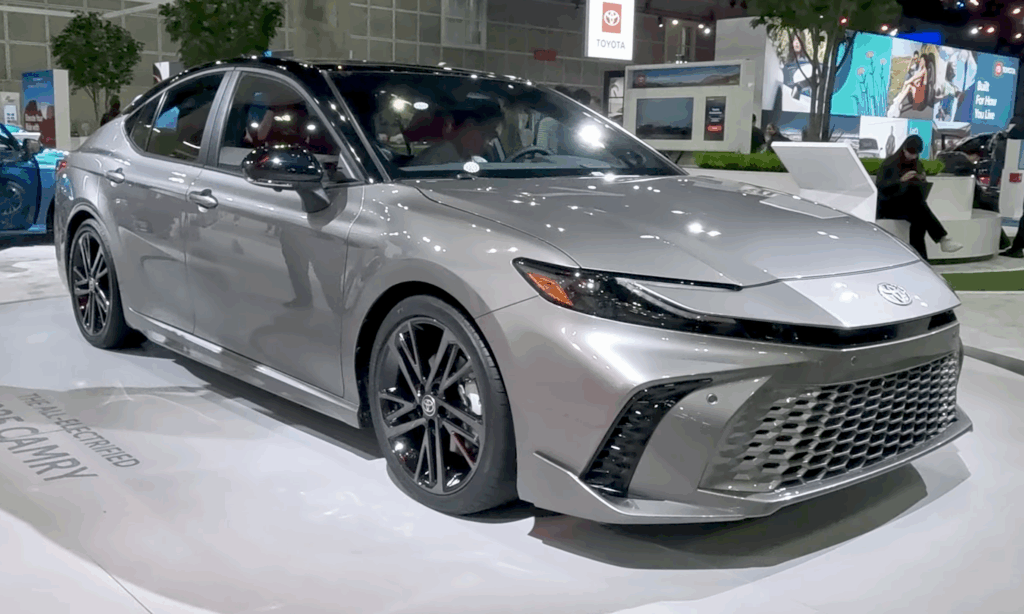
3. **2025 Toyota Camry HEV FWD: Midsize Comfort with Compact-Beating Efficiency**
While the 2025 Toyota Camry HEV (Hybrid Electric Vehicle) is technically classified as a midsize sedan, its astonishing fuel economy figures position it as a fierce competitor in the conversation about compact-level efficiency, earning its spot among the best gas mileage hybrid cars. The Camry HEV stands as the most fuel-efficient midsize sedan available, outperforming even the majority of its smaller compact counterparts. This remarkable achievement, combined with a starting price under $30,000, makes the Camry Hybrid an exceptionally compelling value proposition for those seeking generous interior and cargo space without compromising on fuel economy.
Under the hood, the Camry HEV benefits from Toyota’s world-beating hybrid system, pairing a 2.5-liter I-4 engine with an electric motor to produce a potent 225 horsepower and 163 lb-ft of engine-only torque. This powertrain delivers a combined EPA rating of 51 MPG (53 MPG city, 50 MPG highway), demonstrating an impressive balance of power and parsimony. The ability to achieve such high efficiency in a vehicle of its size underscores Toyota’s expertise in hybrid technology, offering drivers a robust and reliable option that significantly reduces trips to the pump without feeling underpowered.
Beyond its powertrain, the Camry HEV provides an experience synonymous with its lineage: excellent ride comfort and stable handling. While the front-wheel-drive model is highlighted for its efficiency, it’s noted that the all-wheel-drive variant, while offering extra traction, does come with a slight sacrifice of approximately 5 MPG. The interior, known for its spaciousness, offers ample room for five adults, reinforcing the Camry’s traditional appeal as a practical family sedan. Although the exterior styling, based on an older design, might not be as fresh as some newer rivals, it remains impressive and expressive, maintaining a broad appeal.
The 2025 Camry HEV also comes with an enhanced safety suite and improved tech offerings, ensuring a modern and secure driving environment. Standard features provide comprehensive protection and connectivity, contributing to its overall value. Despite a few criticisms, such as its tech suite and overall driving dynamics potentially falling behind some newer competitors, the hybrid powertrain remains the undeniable highlight. It consistently delivers on its promise of outstanding fuel economy and reliable performance, cementing its status as a smart choice for anyone seeking a spacious, efficient, and well-appointed sedan.
Car Model Information: 2023 Nissan Rogue SL
Name: Toyota Camry (XV80)
Caption: 2025 Toyota Camry Hybrid LE (AXVH80, US)
ModelCode: XV80
Production: ubl
ModelYears: 2025 – present
Assembly: ubl
Class: Mid-size car
BodyStyle: Sedan (automobile)
Layout: ubl
Platform: Toyota TNGA-K platform
Related: Toyota RAV4 (XA60)
Engine: ubl
Powerout: ubl
Transmission: ubl
Drivetrain: Hybrid vehicle drivetrain#Power-split or series-parallel hybrid
Wheelbase: cvt
Length: cvt
Width: cvt
Height: cvt
Weight: [object Object]
Predecessor: Toyota Camry (XV70)
Sp: us
Designer: Adam Rabinowitz
Manufacturer: Toyota
Categories: All-wheel-drive vehicles, All Wikipedia articles written in American English, Articles with short description, CS1 Arabic-language sources (ar), CS1 Chinese-language sources (zh)
Summary: The Toyota Camry (XV80) is a mid-size car produced by Toyota since October 2023. Replacing the XV70 series, the XV80 represented the ninth generation of the Toyota Camry in all markets outside Japan, which followed a different generational lineage.
Get more information about: Toyota Camry (XV80)
Buying a high-performing used car >>>
Brand: Toyota Model: Camry HEV
Price: $22,800 Mileage: 50,186 mi.
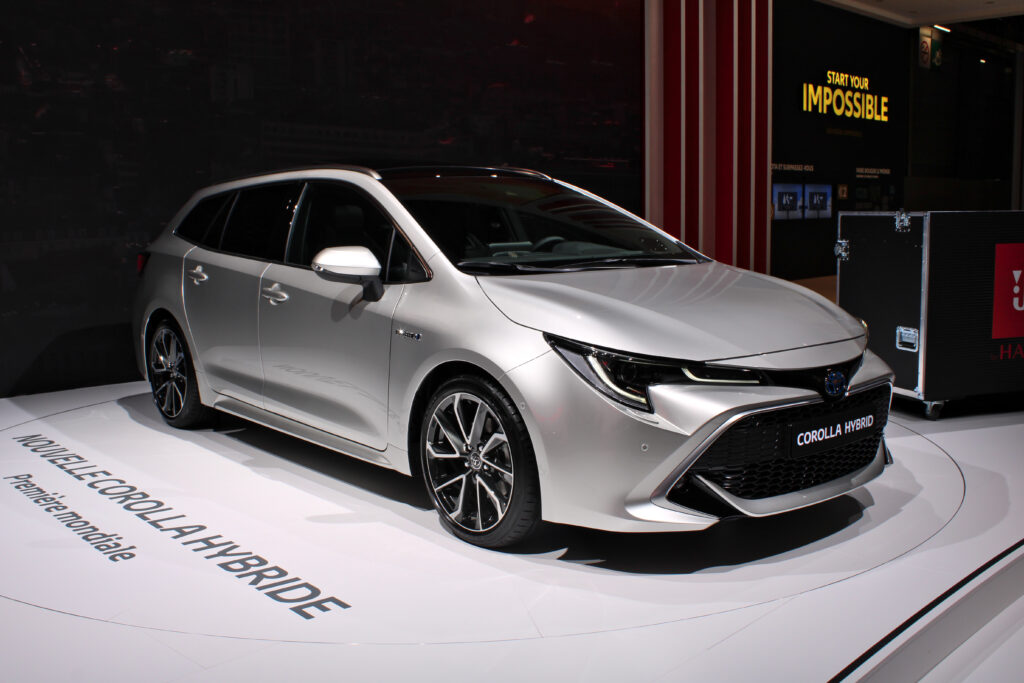
4. **2025 Toyota Corolla Hybrid: The Electrified Bestseller for Unbeatable Value**
For over half a century, the Toyota Corolla has maintained an enviable position as the best-selling vehicle in automotive history, a testament to its enduring combination of space, efficiency, and rugged reliability, all wrapped in an inexpensive package. The 2025 Toyota Corolla Hybrid continues this proud legacy, integrating the renowned hybrid technology from the Prius into a more conventional sedan shape, making it an even stronger pick in the compact car segment. It is, unequivocally, Toyota’s cheapest hybrid, offering an impressive efficiency-to-price ratio that few can match.
At its core, the Corolla Hybrid is powered by a system that pairs a 1.8-liter four-cylinder engine with a lithium-ion battery and electric motor. This setup generates a combined 139 horsepower and 105 lb-ft of engine-only torque, ensuring a balanced performance for everyday driving. The EPA rates it at a commendable 50 combined MPG (53 MPG city, 46 MPG highway), making it a highly economical choice for both urban commutes and longer journeys. This blend of established reliability and cutting-edge hybrid efficiency positions the Corolla Hybrid as a truly smart investment for the budget-conscious consumer.
While available exclusively as a sedan, the Corolla Hybrid shares its other appealing attributes with the broader Corolla range. This includes a surprisingly roomy interior, a stylish design that feels modern, and a sporty driving feel that adds a touch of engagement to the daily commute. Standard tech features are abundant, with Apple CarPlay, Android Auto, and Amazon Alexa seamlessly integrated for connectivity and convenience. Furthermore, the Toyota Safety Sense 2.0 suite is standard, offering critical safety features such as active cruise control, lane assist, automatic braking, and pedestrian detection, providing advanced protection for all occupants.
The strongest case for the 2025 Toyota Corolla Hybrid lies in its combination of impressive efficiency and an exceptionally low starting price, under $25,000. However, this value proposition does involve a few trade-offs when compared to rivals like the Honda Civic Hybrid. The Corolla Hybrid offers less space, significantly less power (to the point of being “downright slow” for some), and a somewhat less refined interior. Despite these points, its comfortable suspension tuning and unbeatable affordability solidify its standing as an excellent choice for drivers prioritizing maximum MPG and minimal expenditure in a dependable, compact package.
Car Model Information: 2023 Nissan Rogue SL
Name: Toyota Corolla
Caption: Twelfth generation model (2020, hatchback)
Manufacturer: Toyota
Aka: unbulleted list
Production: November 1966 – present
Class: unbulleted list
Predecessor: Toyota Publica
Categories: 1970s cars, 1980s cars, 1990s cars, 2000s cars, 2010s cars
Summary: The Toyota Corolla (Japanese: トヨタ・カローラ, Hepburn: Toyota Karōra) is a series of compact cars (formerly subcompact) manufactured and marketed globally by the Japanese automaker Toyota Motor Corporation. Introduced in 1966, the Corolla was the best-selling car worldwide by 1974 and was one of the best-selling cars in the world until 1997, when it surpassed the Volkswagen Beetle as the world’s best-selling automobile of all time. Toyota reached the milestone of 50 million Corollas sold over twelve generations in 2021.
The name Corolla is part of Toyota’s naming tradition of using names derived from the Toyota Crown for sedans, with “corolla” Latin for “small crown”. The Corolla has always been exclusive in Japan to Toyota Corolla Store locations, and manufactured in Japan with a twin, called the Toyota Sprinter until 2000. From 2006 to 2018 in Japan and much of the world, and from 2018 to 2020 in Taiwan, the hatchback companion had been called the Toyota Auris.
Early models were mostly rear-wheel drive, while later models have been front-wheel drive. Four-wheel drive versions have also been produced, and it has undergone several major redesigns. The Corolla’s traditional competitors have been the Nissan Sunny, introduced the same year as the Corolla in Japan and the later Nissan Sentra, Subaru Leone, Honda Civic and Mitsubishi Lancer. The Corolla’s chassis designation code is “E”, as described in Toyota’s chassis and engine codes.
Get more information about: Toyota Corolla
Buying a high-performing used car >>>
Brand: Toyota Model: Corolla Hybrid
Price: $22,800 Mileage: 50,186 mi.
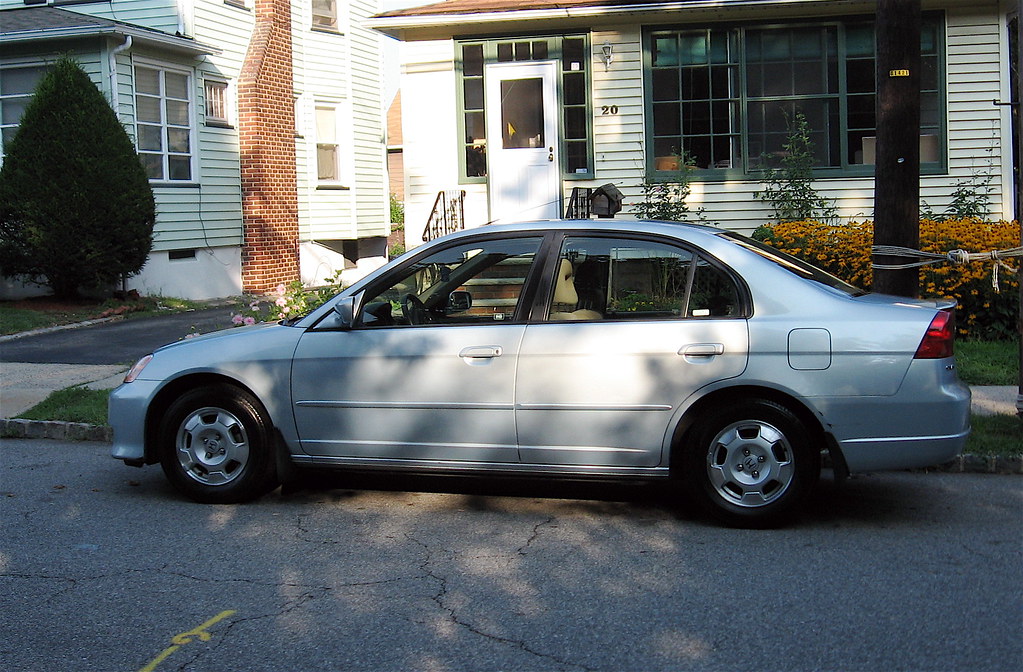
5. **2025 Honda Civic Hybrid: The Sporty Standard-Bearer Redefined**
The Honda Civic has consistently been a benchmark in the compact car segment, celebrated for its engaging dynamics, practical design, and renowned reliability. For 2025, the Civic Hybrid elevates these virtues to an electrified level, presenting a compelling option for those seeking spirited performance alongside exceptional fuel economy. Blending a reasonable sticker price with a powertrain that is both highly efficient and surprisingly sporty, the Civic Hybrid stands as an all-around winner for daily driving, an easy electrified recommendation.
Under the hood, this highly anticipated model features a sophisticated 2.0-liter Atkinson-cycle I-4 engine paired with two potent electric motors. This synergistic setup delivers a robust 200 horsepower and an impressive 232 lb-ft of torque, providing ample power for confident overtaking and an engaging driving feel. Such a powerful hybrid system ensures the Civic Hybrid is not just about frugality, but also about providing a genuinely satisfying and responsive experience behind the wheel.
This sophisticated powertrain results in a combined EPA rating of 49 MPG, with an outstanding 50 MPG in the city and a strong 47 MPG on the highway. These figures demonstrate a remarkable balance, allowing drivers to enjoy brisk acceleration and responsive handling without compromising efficiency. It’s a compelling testament to Honda’s engineering, showcasing how an electrified powertrain can enhance both economy and driving enjoyment in a compact package.
The 2025 Honda Civic Hybrid doesn’t just perform well; its interior is also handsomely designed, comfortable, and chic. Honda’s commitment to quality is evident throughout the cabin, providing an ergonomic and visually appealing environment. While its $30,100 starting price positions it higher in the Civic range, specifically for the Hybrid and Sport Touring Hybrid variants, it reflects advanced features, superior materials, and an enhanced driving experience that justifies the investment.
While its arrival might be “late to the game,” the Civic Hybrid benefits immensely from being based on the “excellent Civic platform,” ensuring a refined ride and stable, predictable handling characteristic of the acclaimed model line. Its impressive fuel economy, combined with a well-appointed interior and the fundamental strengths of Civic engineering, solidify its position as a top contender. This car looks and drives exceptionally well, offering comfort, style, and efficiency.
Car Model Information: 2023 Nissan Rogue SL
Caption: 2024 Honda Civic liftback
Manufacturer: Honda
Aka: ubl
Production: 1972–present
Class: Subcompact car
BodyStyle: fastback,Sedan (automobile)
Layout: Front-engine, front-wheel-drive layout,Front-engine, four-wheel-drive layout
Predecessor: Honda N600,Honda Z600
Categories: 1980s cars, 1990s cars, 2000s cars, 2010s cars, 2020s cars
Summary: The Honda Civic (Japanese: ホンダ・シビック, Hepburn: Honda Shibikku) is a series of automobiles manufactured by Honda since 1972. As of 2023, the Civic is positioned between the Honda Fit/City and Honda Accord in Honda’s global passenger car line-up. It is one of the best-selling automobiles in history, with over 27 million units sold through 2021.
The first-generation Civic was introduced in July 1972 as a two-door fastback sedan, followed by a three-door hatchback that September. With a 1,169 cc transverse engine and front-wheel drive, the car provided good interior space despite its small overall dimensions. Initially gaining a reputation for being fuel-efficient, reliable and environmentally friendly, later iterations have become known for performance and sportiness, especially the Civic Si, SiR, and Type R versions. It is currently in its eleventh generation, which has been produced since 2021.
The Civic has often been rebadged for international markets, and it served as the basis for the Honda CR-X, the Honda CR-X del Sol, the Concerto, the first generation Prelude, the Civic Shuttle (which later became the Orthia) and the CR-V (which in turn was used as the basis for the Honda FR-V).
Get more information about: Honda Civic
Buying a high-performing used car >>>
Brand: Honda Model: Civic Hybrid
Price: $22,800 Mileage: 50,186 mi.
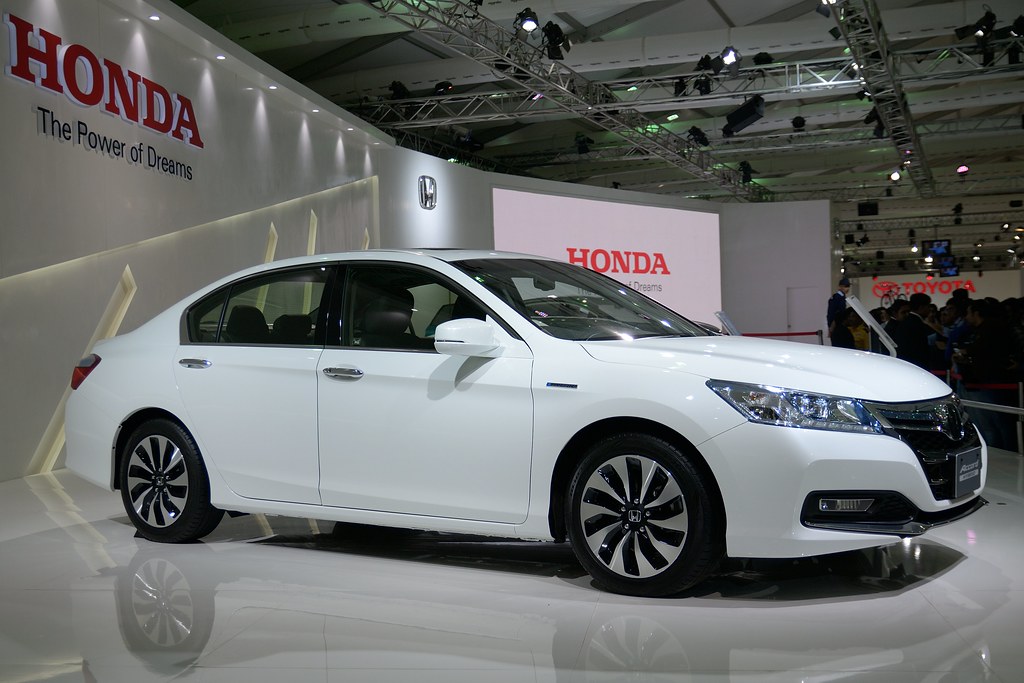
6. **2025 Honda Accord Hybrid: Midsize Refinement with Uncompromised Efficiency**
Stepping into the midsize segment, the 2025 Honda Accord Hybrid offers a compelling package, combining spaciousness, refined driving dynamics, and remarkable fuel efficiency. It stands as an excellent choice for families and discerning commuters. This Accord variant often outperforms some midsize rivals in MPG, reinforcing Honda’s strategy of placing hybrids at the top of their trim ladders, equipped with premium amenities and advanced technology.
Powering the Accord Hybrid is a sophisticated 2.0-liter Atkinson-cycle I-4 engine paired with two robust electric motors. This advanced setup generates a substantial 204 horsepower and an impressive 247 lb-ft of torque. It ensures the Accord Hybrid delivers strong, confident performance, making it notably “quicker than rivals” while maintaining its commitment to efficiency. This proves a midsize sedan can be both exciting to drive and exceptionally frugal.
Efficiency figures are equally impressive, with the Accord Hybrid achieving an EPA combined rating of 48 MPG: 51 MPG in the city and 44 MPG on the highway. These numbers underscore its ability to offer spirited acceleration and significant fuel savings. This balance is a testament to Honda’s innovative approach, maximizing output while minimizing fuel consumption, meeting the demands of modern drivers.
Inside, the 2025 Accord Hybrid continues to impress with its “excellent interior” and a “spacious front row,” providing ample comfort and thoughtful design. The ride quality is consistently described as “excellent,” complemented by stable and predictable handling, contributing to a confident and composed driving experience. While minor criticisms, such as “wind noise at highway speed” and “slightly dead-feeling steering,” are noted, they do not significantly detract from its overall premium feel.
Despite being positioned as “most expensive in class,” the Accord Hybrid’s comprehensive feature set, superior efficiency, and attractive, well-crafted interior design make it a strong value proposition. It represents a harmonious blend of Honda’s engineering prowess, offering an attractive midsize sedan that excels in both practicality and eco-conscious motoring, without compromising the Accord’s traditional strengths of space and refinement.
Car Model Information: 2023 Honda Accord EX 1.5T
Name: Honda Accord
Caption: 2023 Honda Accord LX (US)
Alt: Front three-quarter view of a front-engined four-door car.
Manufacturer: Honda
Production: 1976–present
Class: Compact car
BodyStyle: hatchback
Layout: Front-engine, front-wheel-drive layout
Predecessor: Honda 1300
Categories: 1980s cars, 1990s cars, 2000s cars, 2010s cars, 2020s cars
Summary: The Honda Accord (Japanese: ホンダ・アコード, Hepburn: Honda Akōdo; ), also known as the Honda Inspire (Japanese: ホンダ・インスパイア, Hepburn: Honda Insupaia) in Japan and China for certain generations, is a series of automobiles manufactured by Honda since 1976, best known for its four-door sedan variant, which has been one of the best-selling cars in the United States since 1989. The Accord nameplate has been applied to a variety of vehicles worldwide, including coupes, station wagons, hatchbacks and a Honda Crosstour crossover.
Get more information about: Honda Accord
Buying a high-performing used car >>>
Brand: Honda Model: Accord
Price: $24,955 Mileage: 28,706 mi.
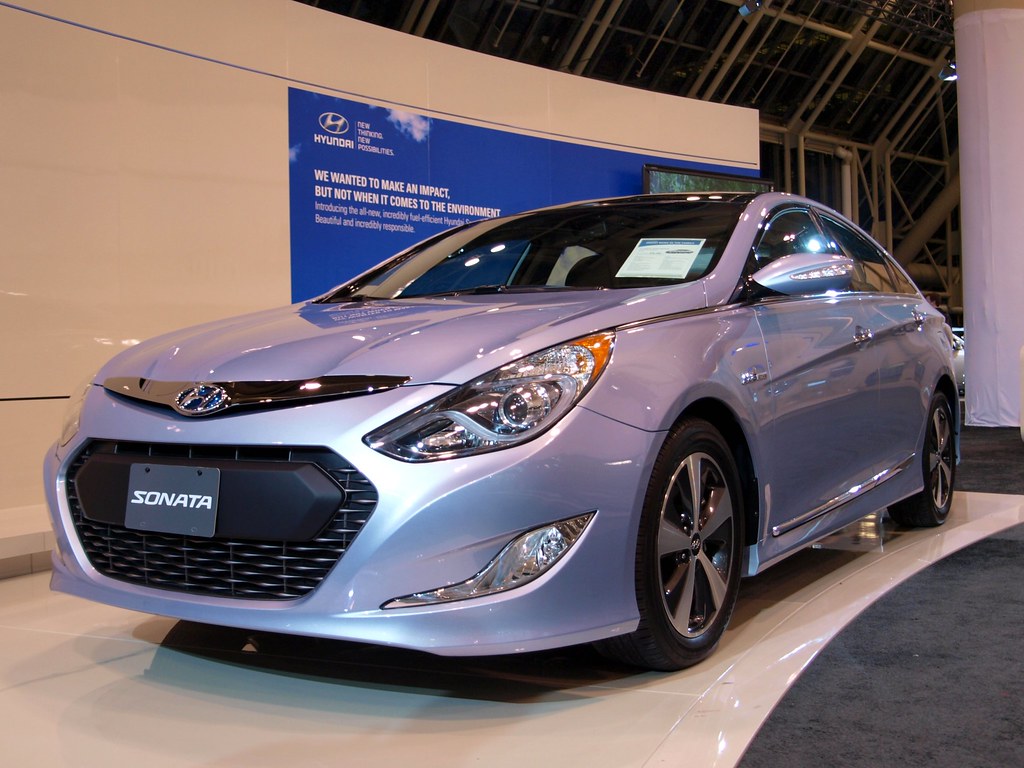
7. **2025 Hyundai Sonata Hybrid: Bold Style Meets Frugal Performance**
In the fiercely competitive midsize non-luxury sedan market, the 2025 Hyundai Sonata Hybrid emerges as a serious contender, distinguishing itself with a remarkably bold, futuristic design and impressive fuel economy. A combined 47 MPG is no mean feat for a midsize sedan, especially when packaged with the high level of comfort and advanced features the Sonata Hybrid provides. Its sleek-yet-cyberpunk aesthetic is both daring and more attractive than many counterparts, ensuring a unique presence.
Underneath its striking exterior, the Sonata Hybrid is precisely engineered, propelled by a 2.0-liter I-4 engine working with an efficient electric motor. This robust powertrain produces a combined 192 horsepower and an engine-only torque of 139 lb-ft, providing adequate power for everyday driving. This configuration is meticulously tuned for maximizing efficiency, achieving an impressive EPA-estimated 47 combined MPG, with 44 MPG in the city and an exceptional 51 MPG on the highway, making it a standout for fuel savings.
While these fuel economy figures are undeniably exceptional, it is important to note, as reviews suggest, that “those good looks are not matched by performance” in raw acceleration. The Sonata Hybrid is characterized as “slow and plush,” indicating a clear prioritization of comfort, quietness, and economy over rapid, sporty acceleration. This makes it an ideal choice for drivers valuing a serene cabin environment and consistent fuel savings.
The interior of the 2025 Sonata Hybrid maintains Hyundai’s strong reputation for providing a comfortable, modern, and well-appointed cabin. It offers a “plush, composed ride,” ensuring daily commutes and long trips are tackled with ease. However, compared to some rivals, the back seats might be slightly less roomy, a minor consideration for those frequently transporting multiple adult passengers.
The modern exterior design is a significant draw, contributing immensely to its strong visual appeal. While the “transmission resists sporty driving” further emphasizes its comfort-oriented and efficient nature, the Sonata Hybrid consistently delivers on its promise of excellent fuel economy and a refined, easygoing ride. It’s a testament to Hyundai’s commitment to stylish, efficient, and comfortable vehicles, making it a compelling option balancing aesthetics and economy.
Car Model Information: 2023 Nissan Rogue SL
Name: Hyundai Sonata
Caption: 2024 Hyundai Sonata SEL (US)
Manufacturer: Hyundai Motor Company
Production: 1985–present
Class: Mid-size car
BodyStyle: sedan (automobile)
Layout: ubl
Predecessor: Hyundai Stellar
Categories: 1990s cars, 2000s cars, 2010s cars, 2020s cars, All Wikipedia articles written in American English
Summary: The Hyundai Sonata (Korean: 현대 쏘나타) is a mid-size car that has been manufactured by Hyundai since 1985. The first generation Sonata, which was introduced in 1985, was a facelifted version of the Hyundai Stellar with an engine upgrade, and was withdrawn from the market in two years due to poor customer reaction. While the nameplate was originally only sold in South Korea, the second generation of 1988 was widely exported.
The Sonata is currently manufactured in South Korea, China, and Pakistan. It was named after the musical term, sonata.
Get more information about: Hyundai Sonata
Buying a high-performing used car >>>
Brand: Hyundai Model: Sonata Hybrid
Price: $22,800 Mileage: 50,186 mi.

8. **2025 Lexus ES 300h: Luxury Efficiency in a Refined Package**
For those desiring both the prestige of a luxury brand and the practicality of outstanding fuel efficiency, the 2025 Lexus ES 300h presents an almost unparalleled offering. As supremely comfortable and fuel-efficient transportation, this elegant sedan “blows away just about everything else, especially for the price.” It masterfully combines stately yet modern looks with a spacious, exceptionally well-appointed interior, all while achieving an impressive 44 MPG combined. This makes it an excellent value at a starting price around $45,000 within the luxury segment.
The ES 300h is meticulously engineered, equipped with a 2.5-liter I-4 engine paired with an advanced electric motor, collectively producing a respectable 215 horsepower and 163 lb-ft of torque. This sophisticated hybrid powertrain is precisely tuned for exceptionally smooth operation and superior fuel economy, earning EPA ratings of 43 MPG city and 44 MPG highway, culminating in that strong 44 MPG combined figure. This remarkable efficiency for its size and luxury class is a core selling point, offering significant savings at the pump.
While the powertrain is undeniably efficient and reliable, some assessments note it “is not the most refined,” suggesting a prioritization of consistent economy and long-term reliability over an ultra-smooth, high-performance feel. This is a minor consideration for the target audience, who typically value serenity and efficiency more than raw power or a thrilling engine note. The overall driving experience remains composed and comfortable, perfectly suited for its luxury cruiser role.
The interior experience is a true hallmark of Lexus, consistently offering a tranquil, luxurious, and upscale environment. Passengers are treated to a “spacious, upscale interior,” providing ample room and premium materials, reinforcing its luxury credentials. Despite its many strengths, the driving dynamics are often described as “uninspiring,” indicating that while it excels in comfort, refinement, and efficiency, it doesn’t aim to be a particularly engaging driver’s car for spirited excursions.
Furthermore, the “unimpressive standard tech” in some areas might be a point of consideration for some tech-savvy luxury buyers, as certain rivals might offer more cutting-edge infotainment. However, these are often minor quibbles in an otherwise robust and compelling package. The 2025 Lexus ES 300h stands as a beacon for luxury efficiency, delivering an elegant and frugal driving experience that solidifies its place as an excellent choice for a premium, spacious, and gas-sipping vehicle.
**Concluding perspective on the compact hybrid revolution**
As we’ve journeyed through these eight exceptional compact and midsize hybrids, it’s clear the era of compromising between performance, comfort, and fuel efficiency is behind us. From the groundbreaking legacy of the Toyota Prius to the luxurious yet economical Lexus ES 300h, each vehicle on our list represents a significant leap in automotive engineering. These cars are not just achieving ambitious benchmarks; many are consistently surpassing them, redefining what drivers can genuinely expect from their daily commute and weekend adventures.
Car Model Information: 2023 Nissan Rogue SL
Name: Lexus ES
Caption: Lexus ES 350 (GSZ10)
Manufacturer: Toyota
Aka: unbulleted list
Production: June 1989 – present
Class: unbulleted list
BodyStyle: unbulleted list
Layout: unbulleted list
ModelYears: 1990–present
Categories: 1990s cars, 2000s cars, 2010s cars, 2020s cars, All-wheel-drive vehicles
Summary: The Lexus ES is a series of mid-size executive cars marketed since 1989 by Lexus, the luxury division of Toyota, across multiple generations, each offering V6 engines and a front-engine, front-wheel-drive layout. The first five generations of the ES used the Toyota Camry platform, while the latter generations are more closely related to both the Camry and the Avalon. Manual transmissions were offered until 1993, a lower-displacement inline-four engine became an option in Asian markets in 2010, and a gasoline-electric hybrid version was introduced in 2012. The ES was Lexus’s only front-wheel drive vehicle until 1998, when the related RX was introduced, and the sedan occupied the entry-level luxury car segment of the Lexus lineup in North America and other regions until the debut of the IS in 1999. The ES name stands for “Executive Sedan”. However, some Lexus importers use the name, “Elegant Sedan”.
Introduced in 1989, the first generation ES 250 was one of two vehicles in Lexus’s debut range, along with the LS 400. The second generation ES 300 debuted in 1991, followed by the third generation ES 300 in 1996, and the fourth generation ES 300/330 in 2001. The first- through fourth generation sedans shared body styling elements with Japan-market Toyota sedans, and a domestic market equivalent, the Toyota Windom (Japanese: トヨタ・ウィンダム, Toyota Windamu), was sold until the launch of the fifth generation ES in 2006. The word “Windom” is a combination of “win” and the suffix “dom” expresses a state of perpetual victory. The fifth generation ES used body styling marketed by Lexus as L-finesse and debuted in early 2006 as a 2007 model. The sixth generation ES debuted in the first half of 2012 as a 2013 model, and features increased cabin dimensions due to a longer wheelbase which is shared with the full-size XX40 series Avalon.
Lexus has positioned the ES in the comfort luxury segment, with an emphasis on interior amenities, quietness, and ride quality, in contrast with more firm-riding sport sedans. Buyers seeking more performance-focused models are targeted by the Lexus IS and rival makes, with such models offering a sportier drive with differently tuned suspensions. In Europe, Japan and other markets where it was not available until the seventh generation model, the GS sport sedans occupy the mid-size category in the Lexus lineup until it was cancelled August 2020. In the United States, the ES has been the best-selling Lexus sedan for over fifteen years.
Get more information about: Lexus ES
Buying a high-performing used car >>>
Brand: Lexus Model: ES 300h
Price: $22,800 Mileage: 50,186 mi.
The compact hybrid segment is a vibrant testament to innovation, offering a diverse range of vehicles that cater to every preference. Whether a buyer prioritizes the sporty agility of the Honda Civic Hybrid, the highway prowess of the Hyundai Elantra Hybrid, or the spacious practicality of the Toyota Camry HEV, a standout option exists. What unites them is their shared commitment to slashing fuel costs and reducing emissions, all without sacrificing desirable features, advanced safety systems, and comfortable driving dynamics. The future of efficient motoring is here, more exciting and accessible than ever.



